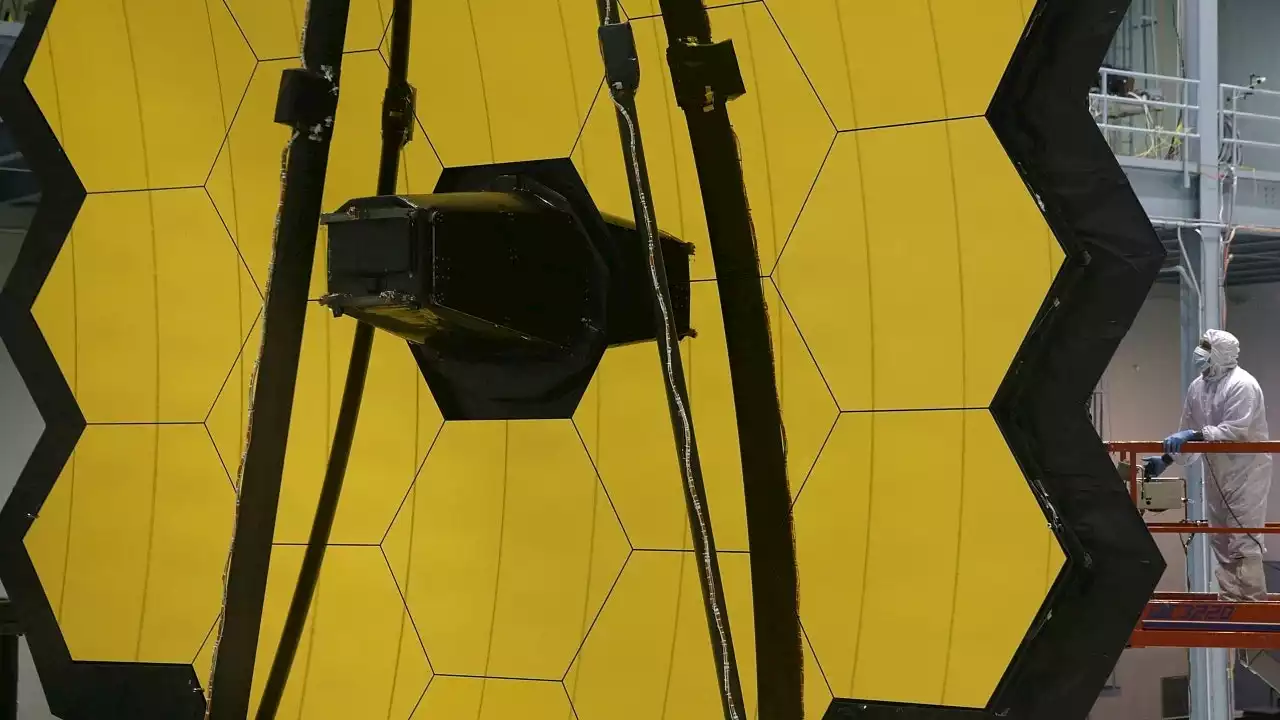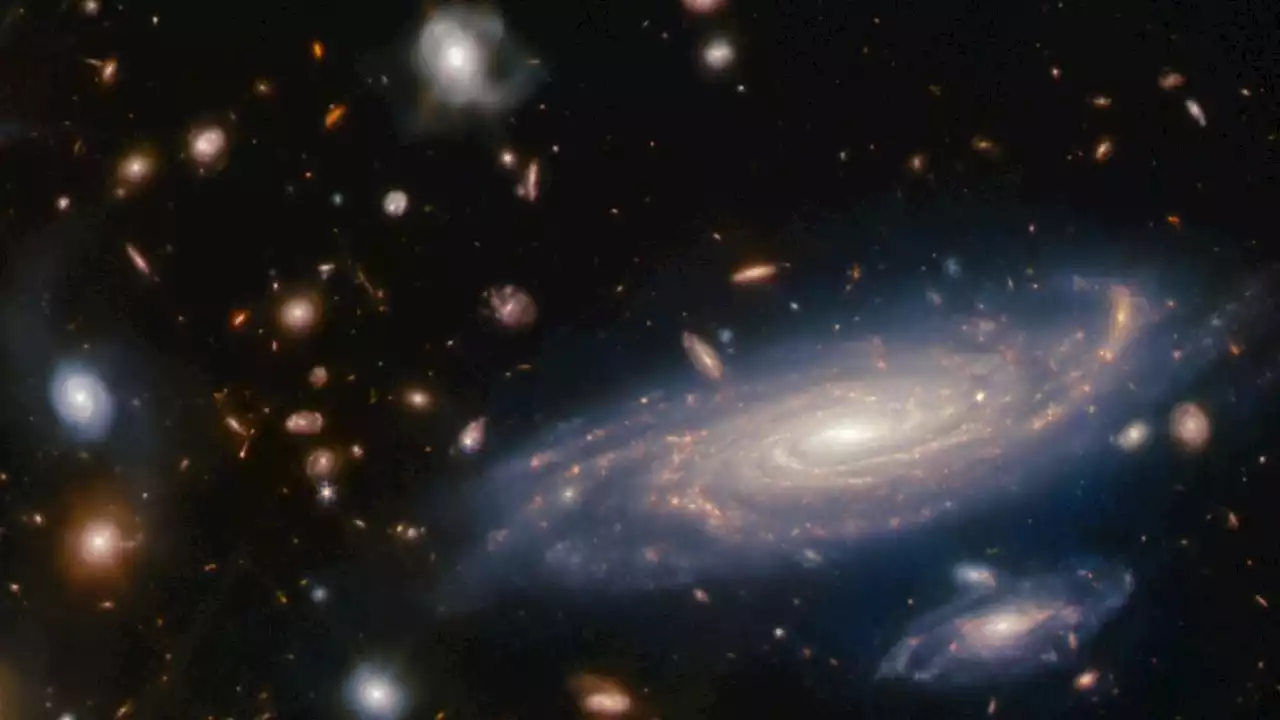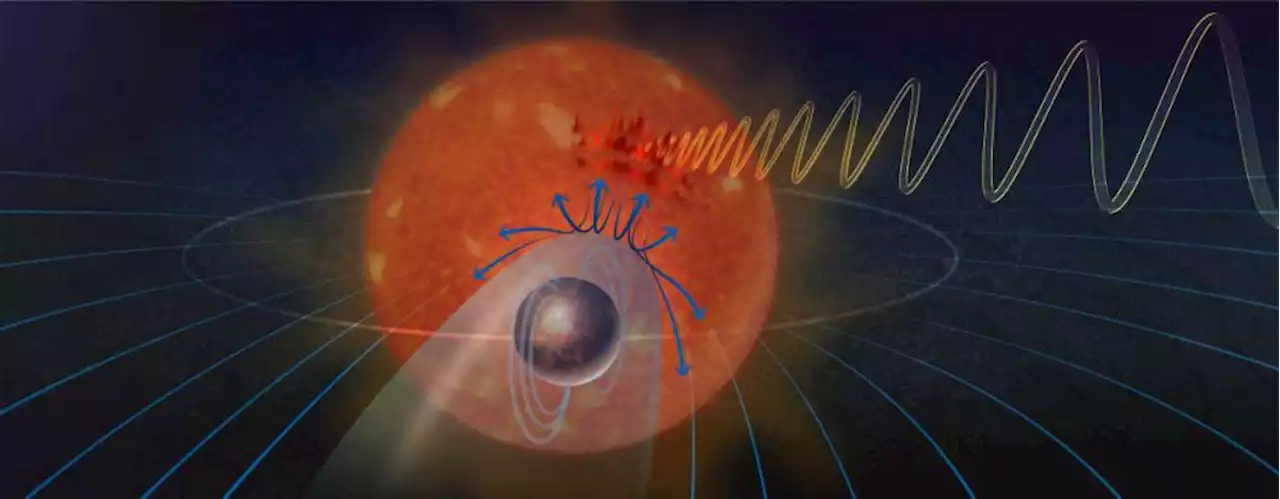The software is an adaptation of the same technology you use to improve your selfies.
."The water pushes light around and distorts it. The atmosphere is, of course, much less dense, but it's a similar concept.""Slight differences in shape can tell us about gravity in. These differences are already difficult to detect," said Alexander."If you look at an image from a ground-based telescope, a shape might be warped. It’s hard to know if that’s because of a gravitational effect or the atmosphere.
While removing atmosphere-induced blur is a standard part of astronomical image processing, this new AI-powered tool is more accurate than classic methods and more modern methods of blur removal — by 38.6% and 7.4%, respectively. The new technique is an adaptation of existing software used to sharpen photographs, but this marks the first time it's been applied to images from ground-based telescopes.
United States Latest News, United States Headlines
Similar News:You can also read news stories similar to this one that we have collected from other news sources.
 Astronomers discovered two black holes close to Earth unlike anything we've seenAstronomers have discovered two new black holes close to Earth that are much further from their stars than expected.
Astronomers discovered two black holes close to Earth unlike anything we've seenAstronomers have discovered two new black holes close to Earth that are much further from their stars than expected.
Read more »
 Webb astronomers discover earliest galaxies confirmed so far in new milestoneInternational astronomers who used observations from two instruments on the James Webb Space Telescope have discovered the earliest galaxies confirmed to date.
Webb astronomers discover earliest galaxies confirmed so far in new milestoneInternational astronomers who used observations from two instruments on the James Webb Space Telescope have discovered the earliest galaxies confirmed to date.
Read more »
 Brightest Gamma-ray Burst Shines Light on Milky Way StructureBrightest Gamma-ray Burst Shines Light on Milky Way Structure - by Astroguyz
Brightest Gamma-ray Burst Shines Light on Milky Way StructureBrightest Gamma-ray Burst Shines Light on Milky Way Structure - by Astroguyz
Read more »
 Astronomers found a lonely galaxy that ate all its friendsAstronomers have spotted a lonely galaxy over 9 billion light-years from Earth that could change everything we know about galaxy clusters.
Astronomers found a lonely galaxy that ate all its friendsAstronomers have spotted a lonely galaxy over 9 billion light-years from Earth that could change everything we know about galaxy clusters.
Read more »
 James Webb telescope discovers the 4 oldest galaxies in the universe, born just 300 million years after the Big BangAstronomers using the James Webb Space Telescope have detected the four oldest galaxies in the known universe, which are forming stars much faster than thought possible.
James Webb telescope discovers the 4 oldest galaxies in the universe, born just 300 million years after the Big BangAstronomers using the James Webb Space Telescope have detected the four oldest galaxies in the known universe, which are forming stars much faster than thought possible.
Read more »
 Do Repeating Radio Signals Indicate an Exoplanet with a Magnetosphere?Astronomers may have found a way to detect an exoplanetary magnetosphere using radio emissions from outbursts at the parent star.
Do Repeating Radio Signals Indicate an Exoplanet with a Magnetosphere?Astronomers may have found a way to detect an exoplanetary magnetosphere using radio emissions from outbursts at the parent star.
Read more »
